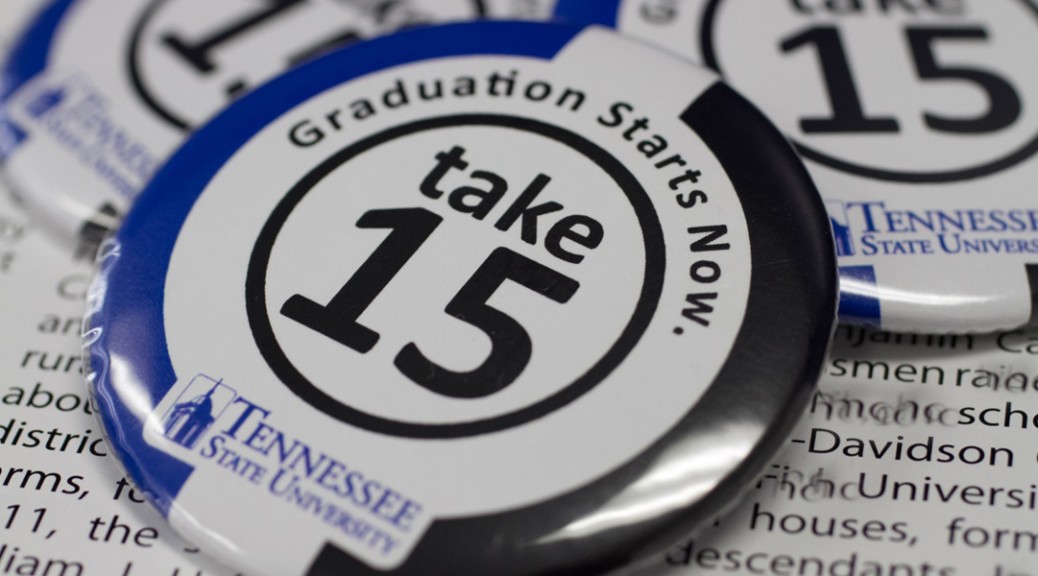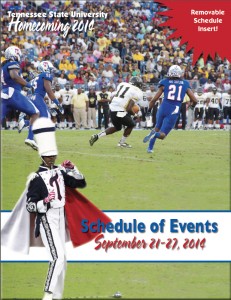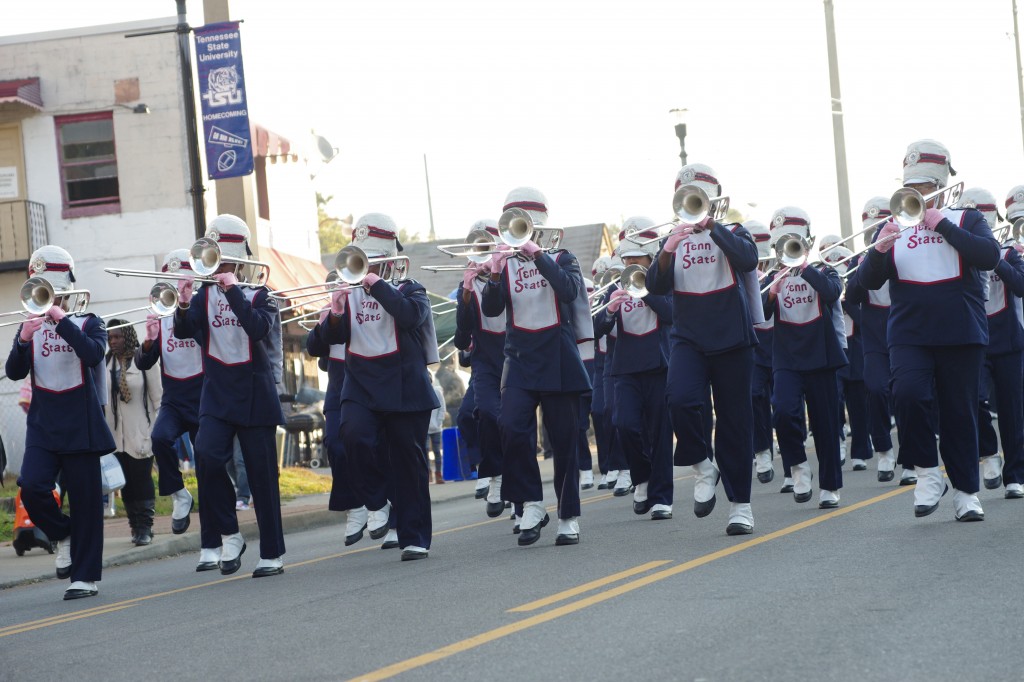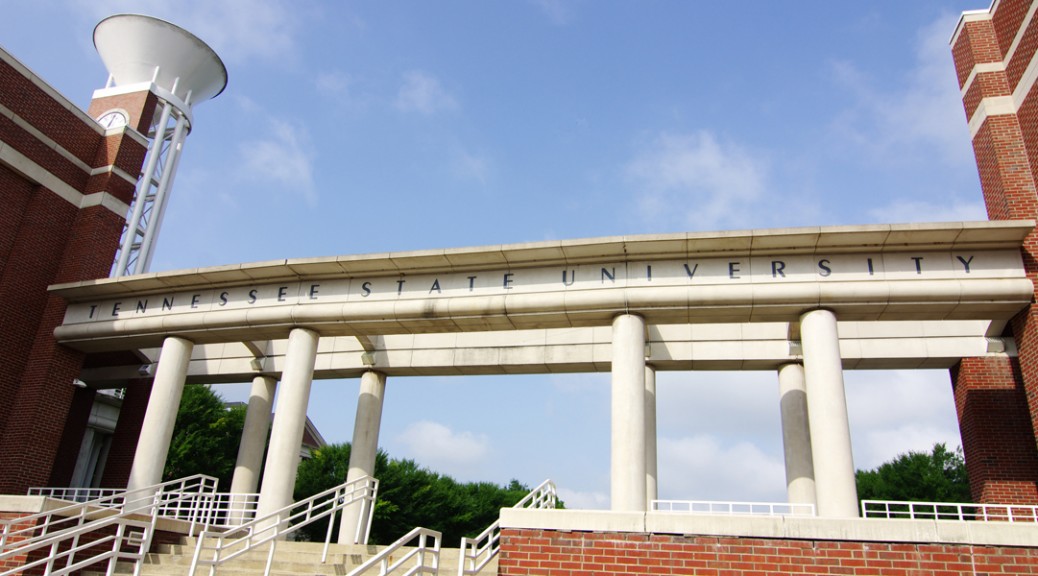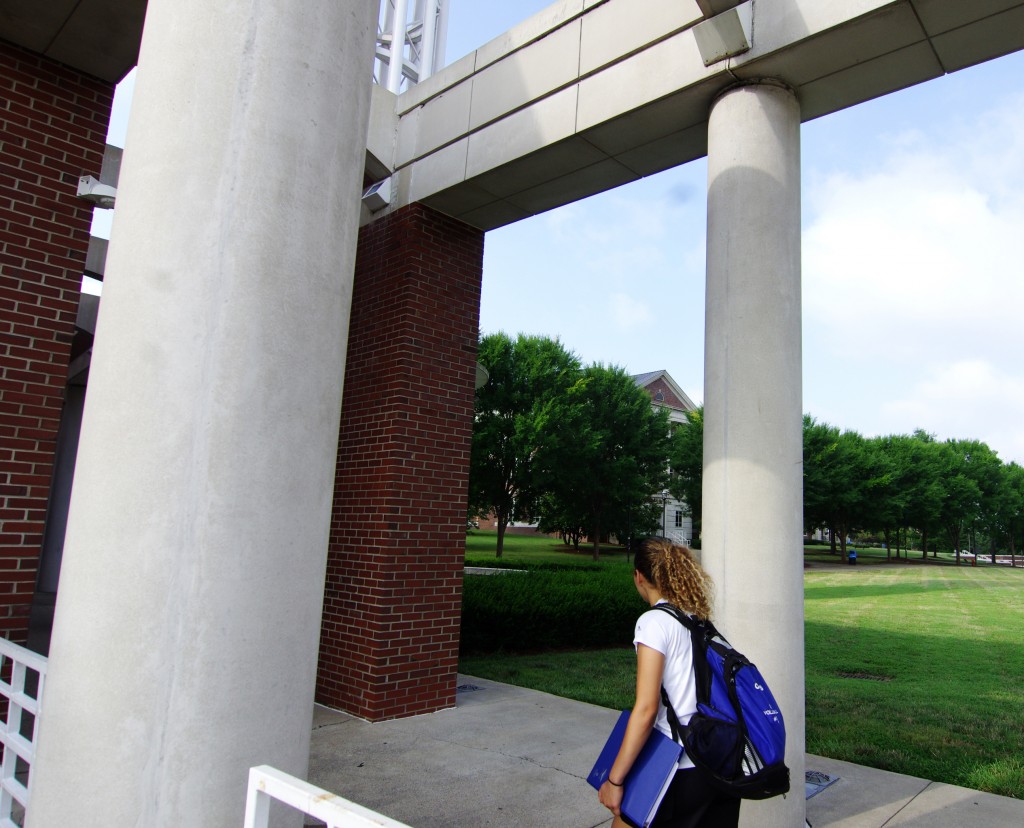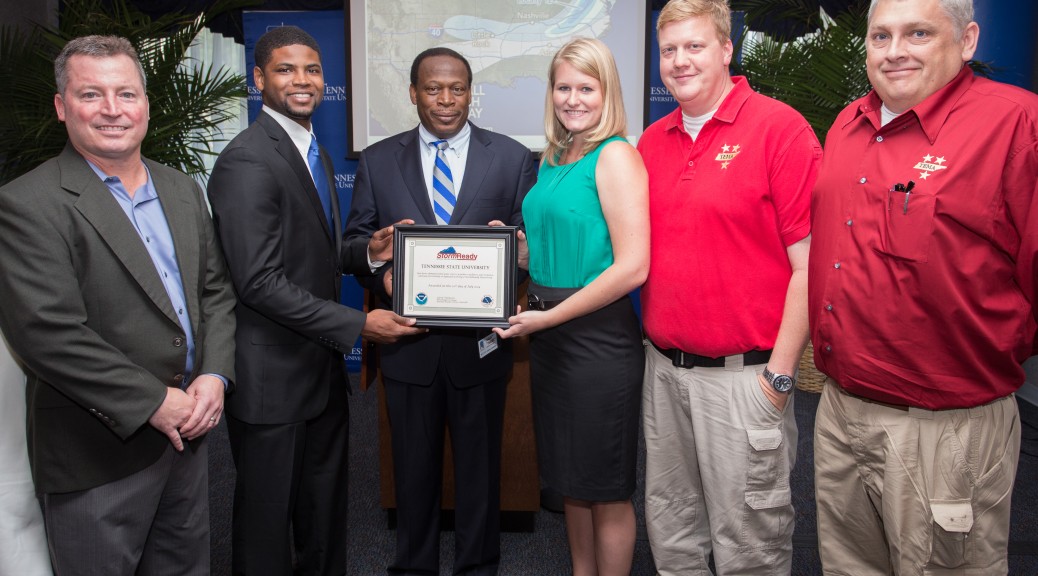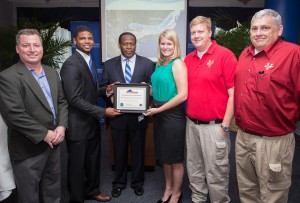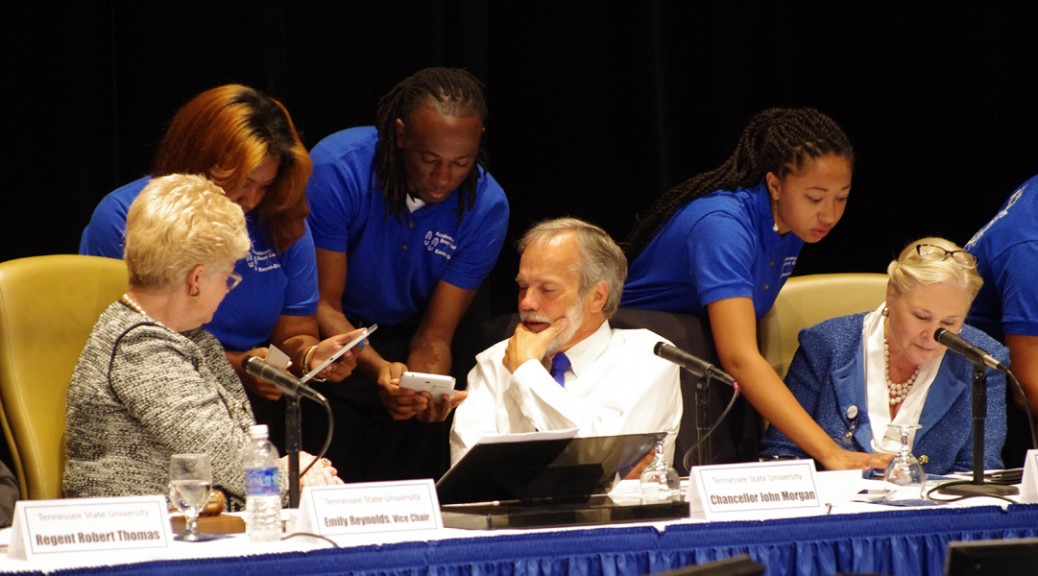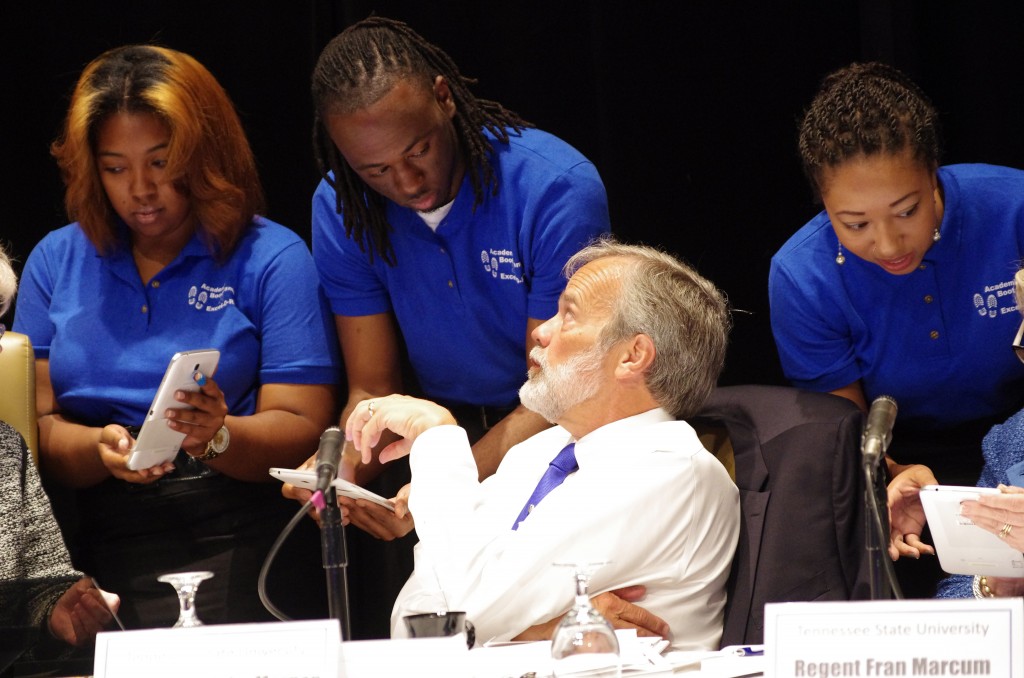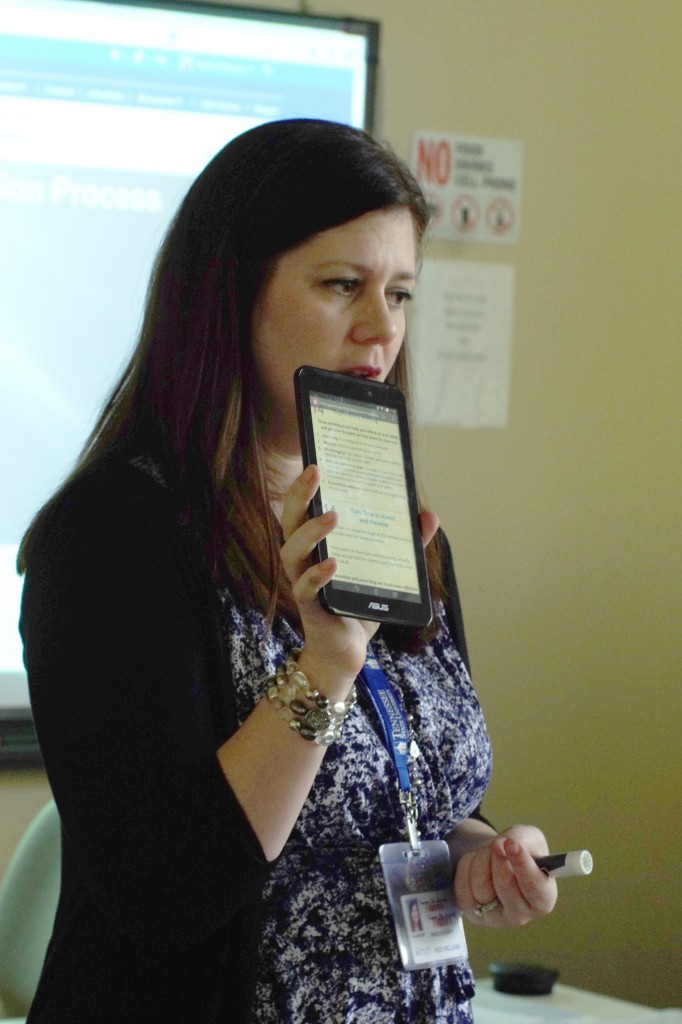
NASHVILLE, Tenn. (TSU News Service) – Professor Heidi Williams is teaching her freshmen English composition class in a way her students can relate. She is using technology many of them have grown accustomed to in today’s digital world. Williams is one of many instructors at Tennessee State University now using tablets and digital textbooks to teach on a daily basis.
“The tablets are great because the students can always have the classroom at their fingertips,” said Williams, who has taught freshman English at the University for the past three years. “I’m a huge advocate of tablets for text books in the classroom. It’s easier for students to refer to readings and pull in outside materials for discussion.”
This semester, first-time freshmen at TSU received digital tablets as part of the University’s Book Bundle initiative. The program is aimed at lowering the costs of traditional paper textbooks while ensuring freshmen have the required books the first day of class.
The plan allows freshman students to buy “e-books” for general education classes, saving students, like Julian Robinson, up to $735 per semester. Robinson is a computer science major from Baltimore, Maryland.
“I have an older brother in college right now and he tells me all the time how expensive his text books are,” said Robinson. “The digital books are saving me money in the long run and basically putting money back in my pocket. Not only can I read all my assignments on the tablet, I can check my grades and turn in my assignments. It’s good to see TSU using technology to the students’ advantage. It has become an important part of my college experience.”

Students pay a flat fee of $355 per semester that is included in their tuition and fees, and have access to the required digital textbooks for classes. The fee includes all textbooks in the general education core for students taking 12-16 semester hours. For students who want print copies of books, they will be available for an additional $15-30 charge.
According to University officials, a large number of students enrolled in classes do not purchase text books due to lack of funds, delay in receiving funds, or simply hold back on buying them for weeks.
“Many of our students would go weeks before they even purchase a text book, which in turn hurts them in the classroom,” said Dr. Glenda Glover, President of TSU. “This new program allows students to have books the first day of class and gives them the ability to be successful since they will have the required materials.”
TSU is unique in the fact that the University is offering e-books for all general education classes, and it is the only university offering the book-bundle initiative in the Tennessee Board of Regents higher education system. The University is joining a growing trend across the country by other colleges and universities by going “digital” with textbooks.

A recent study by the Pearson Foundation indicates college students who say they own a tablet has tripled in the past two years and increasingly prefer to use the device for reading. Sixty-three percent of college students also believe tablets will replace textbooks in the next five years—a 15 percent increase over last year’s survey.
“When we started this project, we were told by numerous book publishers that this had never been done before,” added Dr. Alisa Mosley, associate vice president of Academic Affairs. “This was a massive undertaking to implement. We specifically decided to go with the digital books not only as an alternative to more costly traditional paper books, but also to meet students in the digital age.”
For professors like Williams, meeting students in the digital age has made her online interaction with students easier and feels she is more accessible. Students, she said, have a different view of classroom technology than professors.
“Everything we do is online, from reading to assignments,” added Williams. “While we are still adjusting to the tablets, once we do everything will be second nature to not only the student but instructors as well. And that is what its all about…meeting students where they are and helping them be successful.”
E-books are rising in popularity across the country, according to a recent report from Pew Research Center’s Internet & American Life Project. Pew found that “50% of Americans now have a dedicated handheld device–either a tablet computer like an iPad, or an e-reader such as a Kindle or Nook–for reading e-content.”
Department of Media Relations
Tennessee State University
3500 John Merritt Boulevard
Nashville, Tennessee 37209
615.963.5331
About Tennessee State University
With nearly 9,000 students, Tennessee State University is Nashville’s only public university, and is a comprehensive, urban, co-educational, land-grant university offering 42 undergraduate, 24 graduate and seven doctoral programs. TSU has earned a top 20 ranking for Historically Black Colleges and Universities according to U.S. News and World Report, and rated as one of the top universities in the country by Washington Monthly for social mobility, research and community service. Founded in 1912, Tennessee State University celebrated 100 years in Nashville during 2012. Visit the University online at tnstate.edu.

